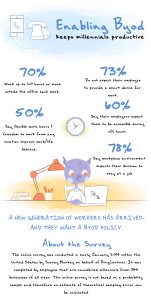Social media is influencing and amplifying the shift from a transactional economy to a relationship economy better than perhaps any other channel. Customers are no longer happy with one-way communication, they expect engaging conversations with the brands they do business with. Organizations that do this, have a competitive advantage over those that are slow to adopt. It’s all about choice and enabling the consumer to interact with the company in a way that they choose.
 Social Customer Care is a Game Changer
Social Customer Care is a Game Changer
The game is changing. Gone are the days where customers wait until they get home to voice their complaints. Historically, brands preferred to shift social issues to what they saw as a more viable customer service channel such as phone, email, or chat. This is no longer good enough. The disciplines of the contact center must be applied to social media, which is now a fully-fledged customer service channel.
So who is the social customer and how can organizations adapt their strategies to meet the needs of this new breed of customer? The social customer does not play by ‘the rules’ and because of the unique challenges of social channels, organizations must invest in technology built for social with social customer care in mind.
1) The Social Customer is Mobile
These customers want a response instantly, in-the-moment. Brands need to invest in social tools that provide quick and easy ways to route content to the correct people. This will also provide key analytics to help track SLA and KPIS specific to response rates to drive real business insights.
Your Social, Maverick Customers:
- 71% desire faster customer service
- 32.8% of complaints are ignored
- 75%+ of Facebook & Twitter customers are mobile
2) The Social Customer is Demanding
These customers want to be helped on the channel they chose to contact you, and not directed to another channel. Integrating social channels with CRM systems and other business intelligence, ensures quick responses and correct answers the first time around. Brands should be moving from reach to resolution.
3) The social customer does not wait
Social media offers a public place for the customer to vent their frustrations. Should you not respond in a suitable amount of time it is simple for them to show their dissatisfaction and post further questions. Questions can come from a brand on social from all angles, using a variety of different handles and different social channels, therefore it is imperative that agents on the frontline have an easy and simple to use interaction channel, with all context available to them
4) The Social Customer Can Be Appeased Before Escalation
Social offers organizations a viable way to help their customers at the POINT of pain. By the time they get home they may have already decided never to grace your company with their presence again. You can create advocates and improve sentiment by helping in-the-moment support early enough to deal with the issue at the highest point of friction.
It is important to understand how serving the social customer may differ from serving your customers on email or on the phone. Facebook messenger offers a fantastic channel for in the moment customer support
The social customer is an unorthodox, independent-minded person. However, we are very quickly seeing this behavior become the norm for most users of social media. Expectations have been set and social media as a customer service channel is here to stay.
Digital & Social Articles on Business 2 Community(48)







